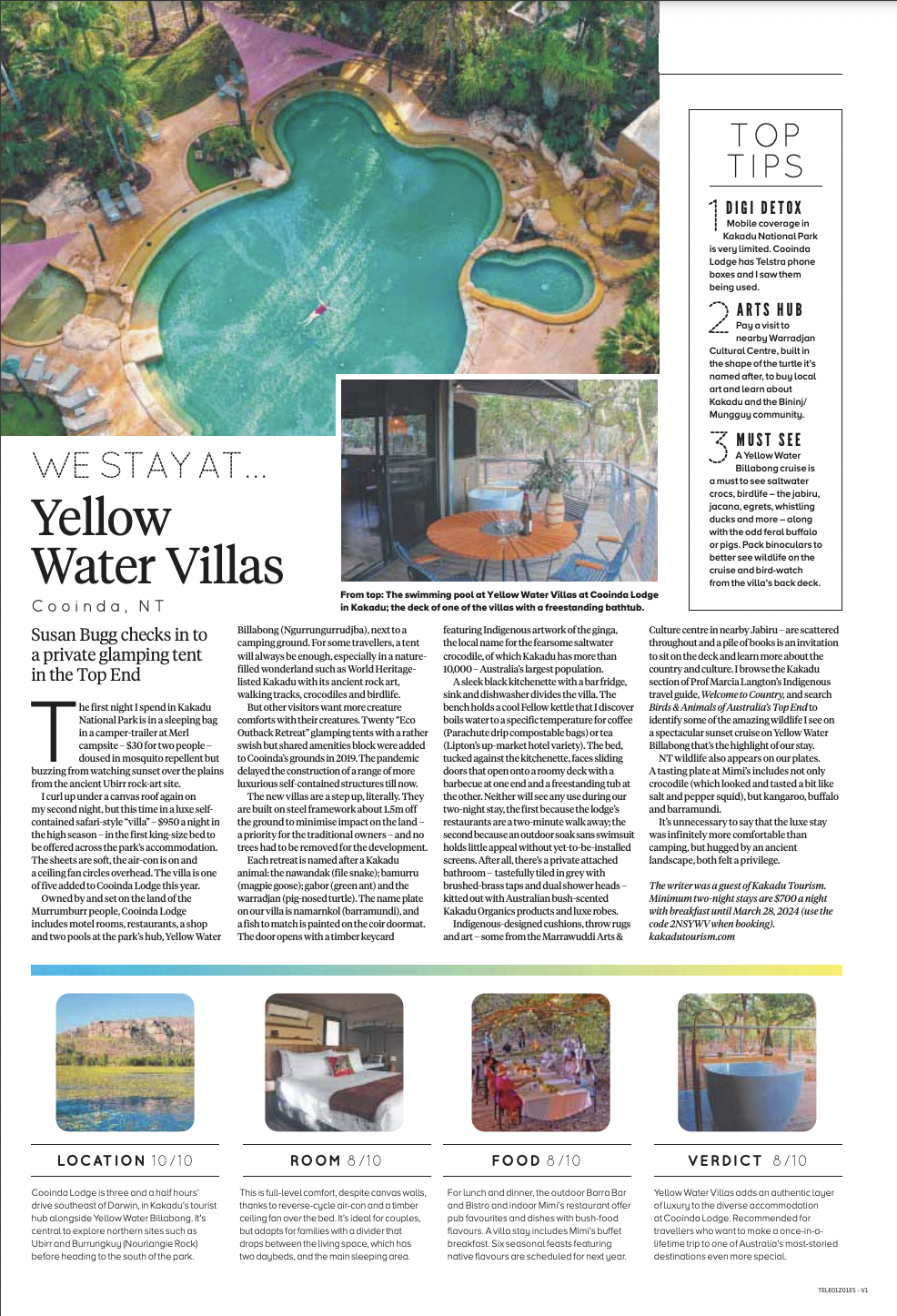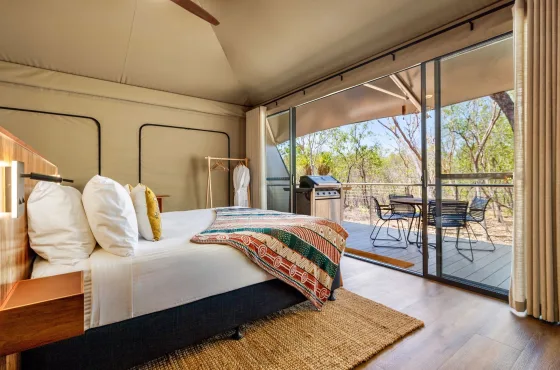
Yellow Water Villas, a New Level of Luxury
Escape: Susan Bugg checks in to a private glamping tent in the Top End
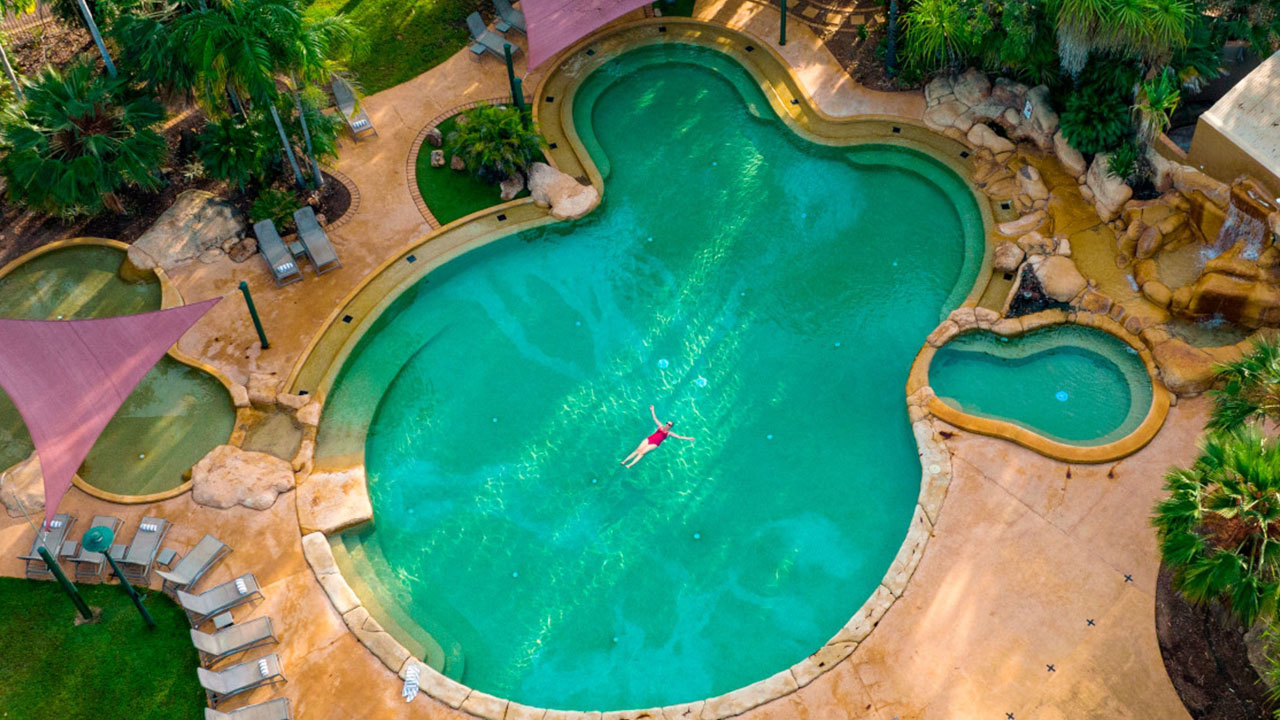
The swimming pool at Cooinda Lodge, Kakadu.
We stayed at Yellow Water Villas in Kakadu | Northern Territory
One of Australia's most iconic national parks is now welcoming luxury travellers with a new level of luxury tented accommodation.
The first night I spend in Kakadu National Park is in a sleeping bag in a camper-trailer at Merl campsite – $30 for two people – doused in mosquito repellent but buzzing from watching sunset over the plains from the ancient Ubirr rock-art site.
I curl up under a canvas roof again on my second night, but this time in a luxe self-contained safari-style “villa” – $950 a night in the high season – in the first king-size bed to be offered across the park’s accommodation. The sheets are soft, the air-con is on and a ceiling fan circles overhead. The villa is one of five added to Cooinda Lodge this year.
Owned by and set on the land of the Murrumburr people, Cooinda Lodge includes motel rooms, restaurants, a shop and two pools at the park’s hub, Yellow Water Billabong (Ngurrungurrudjba), next to a camping ground. For some travellers, a tent will always be enough, especially in a nature-filled wonderland such as World Heritage-listed Kakadu with its ancient rock art, walking tracks, crocodiles and birdlife.
But other visitors want more creature comforts with their creatures. Twenty “Eco Outback Retreat” glamping tents with a rather swish but shared amenities block were added to Cooinda’s grounds in 2019. The pandemic delayed the construction of a range of more luxurious self-contained structures till now.
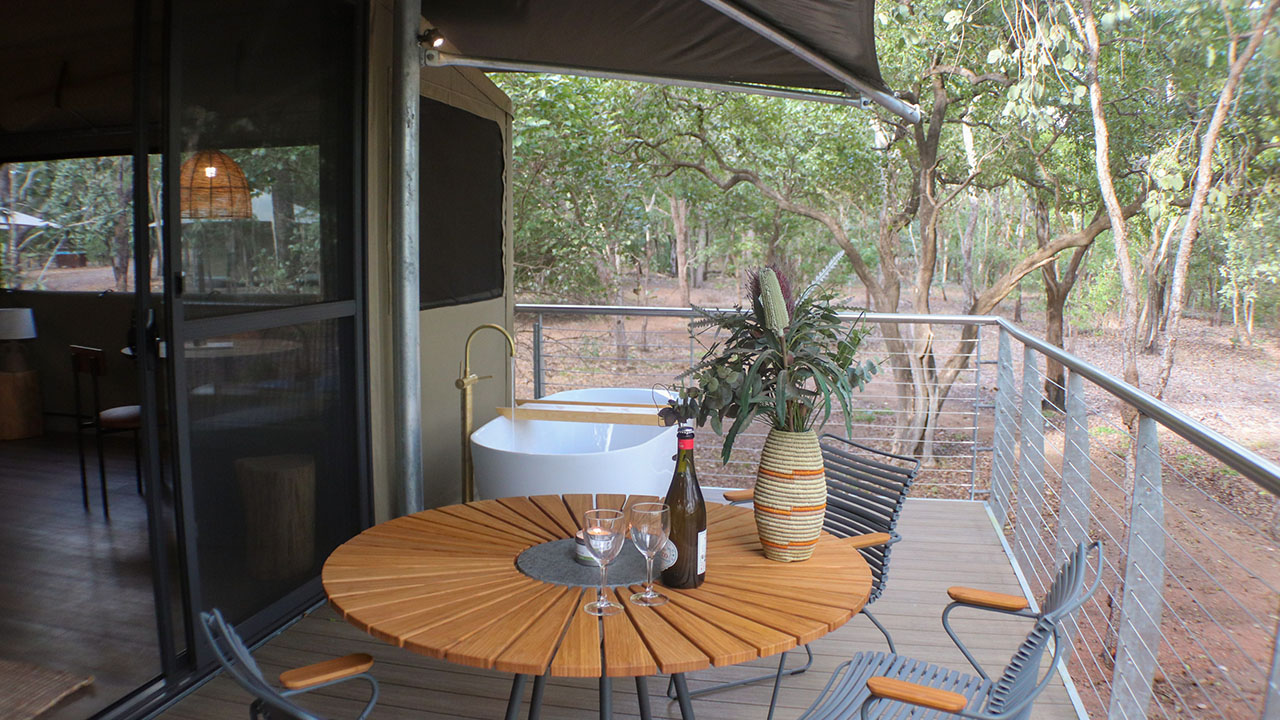
The new villas are a step up, literally. They are built on steel framework about 1.5m off the ground to minimise impact on the land – a priority for the traditional owners – and no trees had to be removed for the development.
Each retreat is named after a Kakadu animal: the nawandak (file snake); bamurru (magpie goose); gabor (green ant) and the warradjan (pig-nosed turtle). The name plate on our villa is namarnkol (barramundi), and a fish to match is painted on the coir doormat. The door opens with a timber keycard featuring Indigenous artwork of the ginga, the local name for the fearsome saltwater crocodile, of which Kakadu has more than 10,000 – Australia’s largest population.
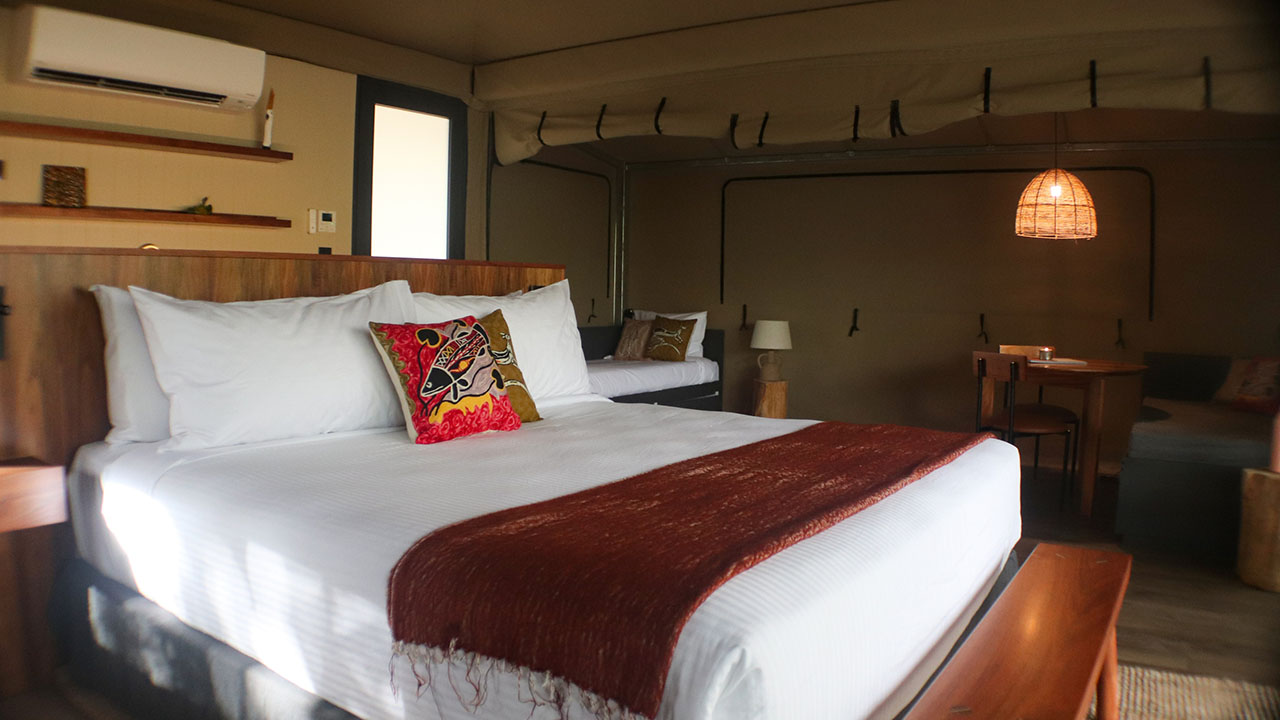
A sleek black kitchenette with a bar fridge, sink and dishwasher divides the villa. The bench holds a cool Fellow kettle that I discover boils water to a specific temperature for coffee (Parachute drip compostable bags) or tea (Lipton’s up-market hotel variety). The bed, tucked against the kitchenette, faces sliding doors that open onto a roomy deck with a barbecue at one end and a freestanding tub at the other. Neither will see any use during our two-night stay, the first because the lodge’s restaurants are a two-minute walk away; the second because an outdoor soak sans swimsuit holds little appeal without yet-to-be-installed screens. After all, there’s a private attached bathroom – tastefully tiled in grey with brushed-brass taps and dual shower heads – kitted out with Australian bush-scented Kakadu Organics products and luxe robes.
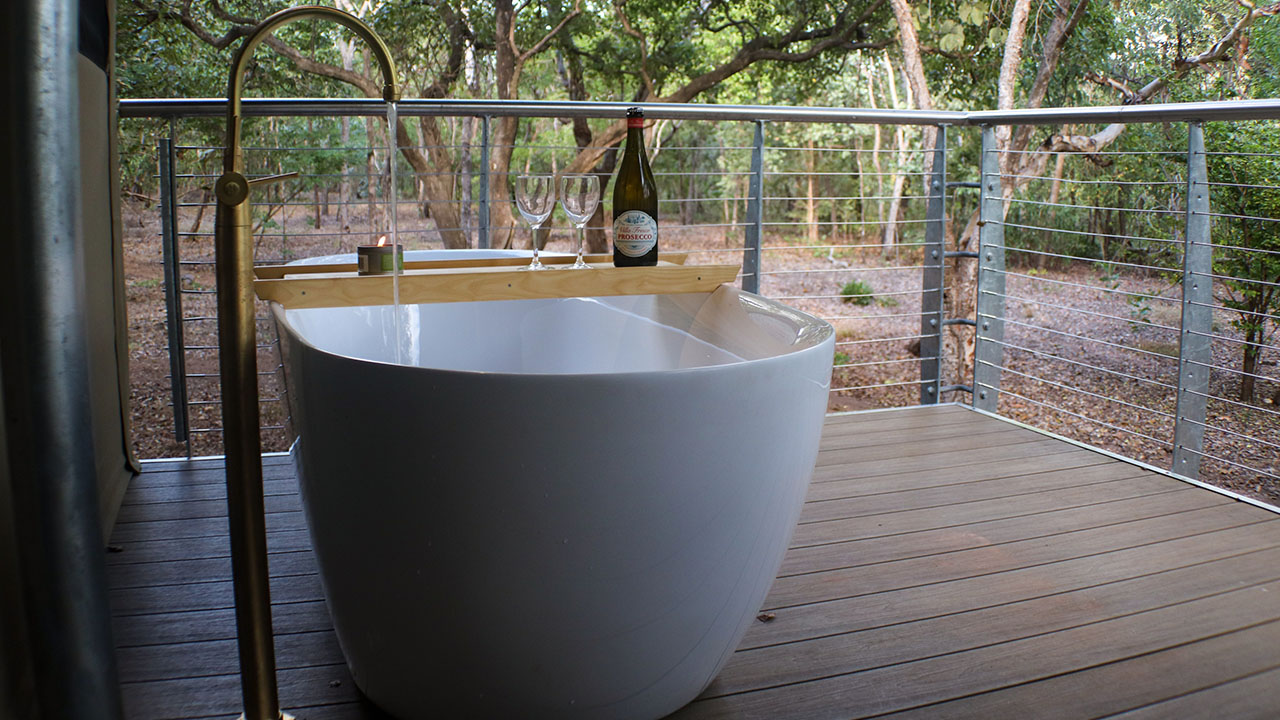
Indigenous-designed cushions, throw rugs and art – some from the Marrawuddi Arts & Culture centre in nearby Jabiru – are scattered throughout and a pile of books is an invitation to sit on the deck and learn more about the country and culture. I browse the Kakadu section of Prof Marcia Langton’s Indigenous travel guide, Welcome to Country, and search Birds & Animals of Australia’s Top End to identify some of the amazing wildlife I see on a spectacular sunset cruise on Yellow Water Billabong that’s the highlight of our stay.
NT wildlife also appears on our plates. A tasting plate at Mimi’s includes not only crocodile (which looked and tasted a bit like salt and pepper squid), but kangaroo, buffalo and barramundi.
It’s unnecessary to say that the luxe stay was infinitely more comfortable than camping, but hugged by an ancient landscape, both felt a privilege.
The writer was a guest of Kakadu Tourism. Minimum two-night stays are $700 a night with breakfast until March 28, 2024 (use the code 2NSYWV when booking).
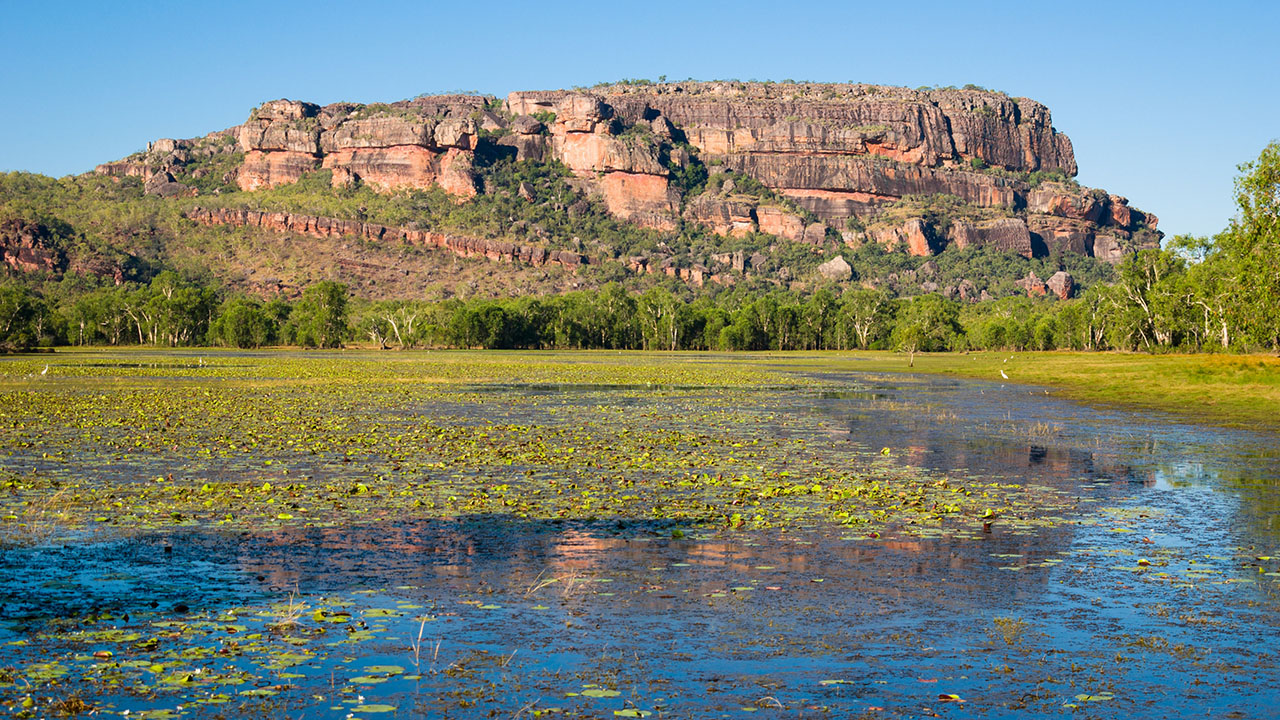
LOCATION: 10/10
Cooinda Lodge is three and a half hours’ drive southeast of Darwin, in Kakadu’s tourist hub alongside Yellow Water Billabong. It’s central to explore northern sites such as Ubirr and Burrungkuy (Nourlangie Rock) before heading to the south of the park.
ROOM: 8/10
This is full-level comfort, despite canvas walls, thanks to reverse-cycle air-con and a timber ceiling fan over the bed. It’s ideal for couples, but adapts for families with a divider that drops between the living space, which has two daybeds, and the main sleeping area.
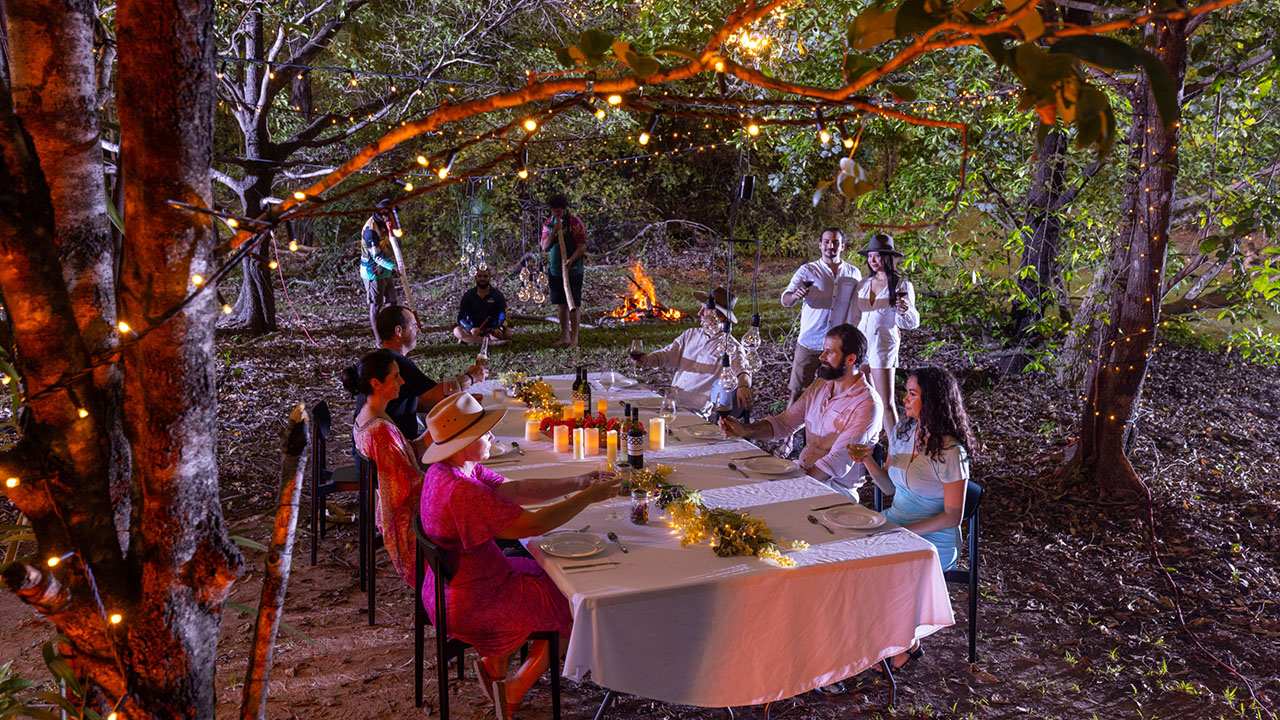
FOOD: 8/10
For lunch and dinner, the outdoor Barra Bar and Bistro and indoor Mimi’s restaurant offer pub favourites and dishes with bush-food flavours. A villa stay includes Mimi’s buffet breakfast. Six seasonal feasts featuring native flavours are scheduled for next year.
VERDICT: 8/10
Yellow Water Villas adds an authentic layer of luxury to the diverse accommodation at Cooinda Lodge. Recommended for travellers who want to make a once-in-a-lifetime trip to one of Australia’s most-storied destinations even more special.
TOP TIPS
